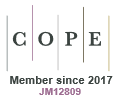Phytotoxicity, Poison Retention, Palatability, and Acceptance of Carriers Used in Compound-1080-Foliage Baits for Control of Feral Goats.
JP Parkes
Wildlife Research
18(6) 687 - 694
Published: 1991
Abstract
Feral goats have been controlled in New Zealand by treating leaves of favoured food plants with the poison sodium monofluoroacetate (compound 1080) in a suitable carrier, either carbopol gel or petrolatum grease. The effect of these 2 carriers on the most suitable plant species (mahoe), their retention of 1080, their comparative palatability to goats, and the acceptance of the least palatable, petrolatum, were studied in a series of trials. Both carriers caused baited leaves to absciss, and the rate of abscission increased when 1080 was included. Toxic petrolatum was 3 times less phytotoxic than carbopol and retained 1080 for much longer (carbopol lost most of its toxin after 200 mm of rain). Abscissed petrolatum-treated leaves retained much of their toxicity for at least a year. Goats detected and, to some extent, rejected leaves of all treatments, either by not eating them or by spitting them out (particularly petrolatum-treated leaves). However, use of iophenoxic acid as a bait marker indicated that even petrolatum-treated leaves were consumed by 24 of 30 goats tested. Carbopol with 1080 is recommended for use where its distribution is sufficient to place all goats at immediate risk. Petrolatum is not recommended for general use, although it can be used in areas where a long-life bait is needed.https://doi.org/10.1071/WR9910687
© CSIRO 1991


